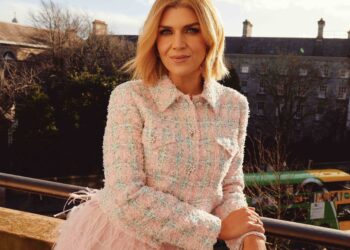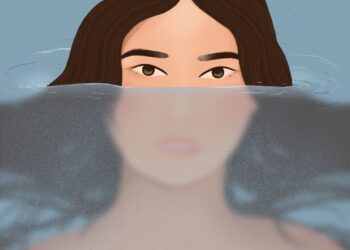In the December issue of Irish Country Magazine, Deputy Editor Niamh Devereux shines a light on the often misunderstood condition ADHD, for our health series, The Invisible Struggle
We’ve all heard of ADHD, most of us know what the letters stand for (Attention-Deficit/Hyperactivity Disorder), but how many of us actually know what it is?
There has been an inordinate amount written about the condition over the last few years, particularly since the birth of TikTok, with users taking to the popular social media site in their millions to find understanding, empathy and information on it. However, it’s worth noting that possibly 50% of posts on social media are giving out incorrect information.
ADHD is a misunderstood neurodevelopmental condition which is usually diagnosed in children. However, thanks to the soaring interest and discourse around the subject, there has been an unprecedented diagnosis and assessment boom.
In the latest edition of Irish Country Magazine, Niamh Devereux spoke to Ken Kilbride, CEO of ADHD Ireland who shared some hugely insightful facts, including:
- Between the ages of eight and 12, four times more boys get diagnosed than girls
- While ADHD is often expressed by boys via physical or mental hyperactivity at that age, girls can often slip through the cracks if they are quiet and don’t cause any trouble
- Girls are generally better at social camouflage – they know how to mask their symptoms. However, this can lead to anxiety and depression during puberty
- ADHD Ireland is regularly meeting women in their 40s getting diagnoses, and recently a woman in her 70s
- Symptoms in adult women can become more extreme during certain periods of their menstrual cycle leading to prescriptions for anxiety or depression medication instead of treating her for ADHD.

Small changes
If you live with ADHD, there are things you can do on a daily basis to manage your emotions:
Take regular breaks for a mini-meditation
They can be as little as one minute to simply be aware of your body, your breathing and where you are at that moment. There are lots of great apps and Youtube videos available if you would prefer a guided meditation.
Switch off your phone
It’s a great idea to unplug for an hour or so each day to get away from the bombardment of news, social media or demands of everyday life.
Mute social media accounts that trigger you
Create the feed that makes you smile when you open an app on your phone. If you’re worried about hurting someone’s feelings, you don’t have to block or unfollow them. Simply press the ‘mute’ button and their posts will be eliminated from your vision.
Make small changes to improve your diet
Whether it’s drinking one extra glass of water a day or introducing more colourful vegetables into your meals, it’s a good idea to be aware of what you are consuming on a daily basis.
Stroke a pet
Sometimes animals understand us better than humans! If you feel this way but don’t have a pet, stroke one at the park (after asking their owner first) or volunteer at a local animal rescue.
Ask for help
If you’re struggling with your mental health – whether you think it’s big or small – reach out to someone. It can be a family member, a friend or your GP, it doesn’t matter. The important thing is that you share what’s on your mind with someone that you trust.
To find out more on ADHD, from how to seek an assessment and diagnosis in Ireland, to what it’s really like to live with, pick up the December issue of Irish Country Magazine.







